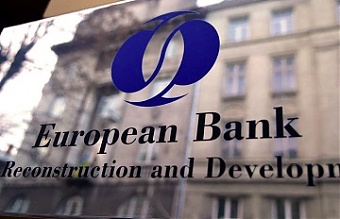Banks, EU – Baltic States, Financial Services, Funds, Good for Business, Markets and Companies
International Internet Magazine. Baltic States news & analytics
Friday, 09.05.2025, 10:20
EBRD and Baltic states to develop commercial paper market
 Print version
Print version |
|---|
Commercial papers (CPs) are short-term unsecured promissory
notes issued by companies with a fixed-term maturity and used to address
short-term liquidity or working capital needs. Demands for such alternative
sources of finance are rapidly increasing in the current coronavirus pandemic.
In a Memorandum of Understanding, signed today, the four
parties resolve to cooperate in developing a deeper and more efficient regional
CP market in line with the best practices outlined in the "Short-Term
European Paper" by the European
Central Bank (ECB). It states that the papers must be freely transferable
and capable of being traded over-the-counter.
The requirement for free transferability aims to align with
the collateral eligibility requirement by the ECB for financial instruments by
being admitted to trading on acceptable trading venues, which are regulated
markets in the European Union (EU); or a non-regulated market accepted by
the Eurosystem, the monetary authority of the eurozone.
Promoting the regional CP market will contribute to
diversifying sources of finance for local corporates, supporting the
development of tradeable securities and improving the regional debt capital
market and mobilising funds from institutional investors.
The Baltic CP initiative complements existing regional
projects implemented by the EBRD in close partnership with the local
authorities and the European Commission to increase the supply of investable
capital market instruments. The initiative is in line with the European
Commission's action plan for the creation of a Capital Markets Union.
Estonia's Central Bank Governor Madis Müller said:
"The EBRD's continued support to further developing the Baltic capital
markets is much appreciated. There have been many success stories for the EBRD
in the three Baltic markets and I expect this to be another one. Broadening the
menu of financing options to corporates is especially helpful during the
current challenging economic climate."
Latvia's Central Bank Governor Mārtiņš Kazāks said:
"Developing a commercial paper programme aims to deliver multiple benefits
to the Baltic states economies, including deepening of our capital markets,
diversifying the sources of corporate financing and expanding the investment
opportunities for investors. Once again the Baltic states and the EBRD are
joining forces and given our long-standing cooperation we expect another
successful outcome with this endeavour."
Lithuania's Central Bank Chairman of the Board Vitas
Vasiliauskas said: "It is good timing to work on the development of the
commercial paper market as the expansionary Eurosystem monetary policy
facilitates favourable market conditions for debt issuance. A better developed
financial market should positively contribute to a smoother transmission of
monetary policy to the real economy. In the future, the diversification of
sources of financing would also increase the resilience of Baltic corporates in
stressful times as well as contribute to more favourable borrowing conditions
in normal times."
EBRD Vice President Alain Pilloux said: "The
pan-Baltic CP market can create a viable alternative for financing when needed
the most. The proposal aims to address the short-term corporate financing needs
at a regional level by mobilising investment funds in line with the EU Capital
Markets Union initiative. This product's development would have not been
possible without the extensive support of our long-term partners, namely the
central banks in the Baltic states."
The EBRD has been actively involved in the development of capital markets in the three Baltic states and, in 2018 together with the European Commission, sponsored the signing of a Memorandum of Understanding between Estonia, Latvia and Lithuania to create a pan-Baltic capital market to strengthen their economies and stimulate investment to create jobs.
The EBRD has been investing in the Baltic states since 1991. To date, the Bank's total investment there stands at more than EUR 2.5 bn through more than 280 projects
- 28.01.2022 BONO aims at a billion!
- 26.08.2021 LLC Dizozols Investments finalizes investment attraction deal with Crowdestor with record-high profits
- 13.02.2021 Моя жизнь в газете. Очерки по новейшей истории Латвии. Глава 1
- 25.01.2021 Как банкиры 90-х делили «золотую милю» в Юрмале
- 30.12.2020 Накануне 25-летия Балтийский курс/The Baltic Course уходит с рынка деловых СМИ
- 30.12.2020 On the verge of its 25th anniversary, The Baltic Course leaves business media market
- 30.12.2020 Business Education Plus предлагает анонсы бизнес-обучений в январе-феврале 2021 года
- 30.12.2020 Hotels showing strong interest in providing self-isolation service
- 30.12.2020 EU to buy additional 100 mln doses of coronavirus vaccine
- 30.12.2020 ЕС закупит 100 млн. дополнительных доз вакцины Biontech и Pfizer








 «The Baltic Course» Is Sold and Stays in Business!
«The Baltic Course» Is Sold and Stays in Business!

